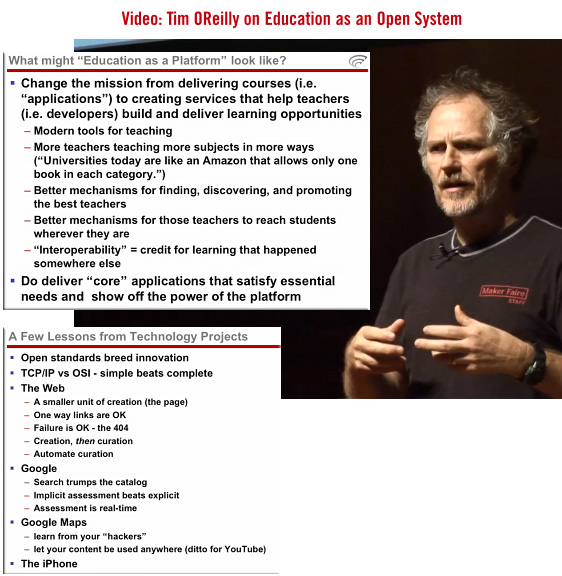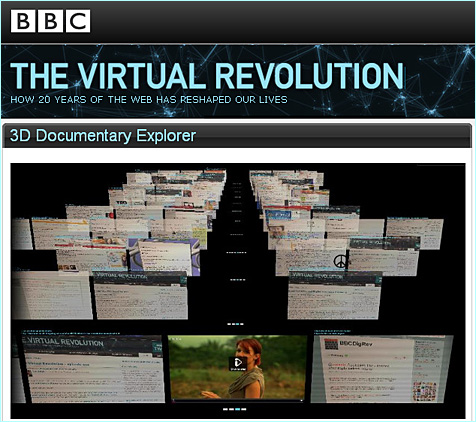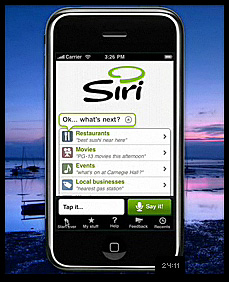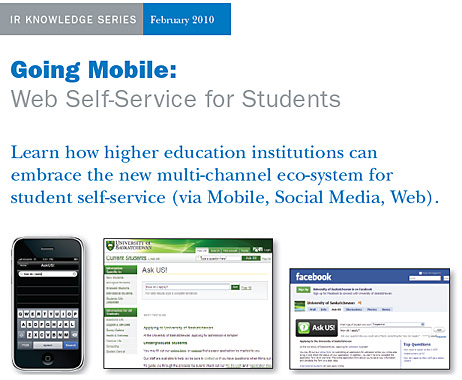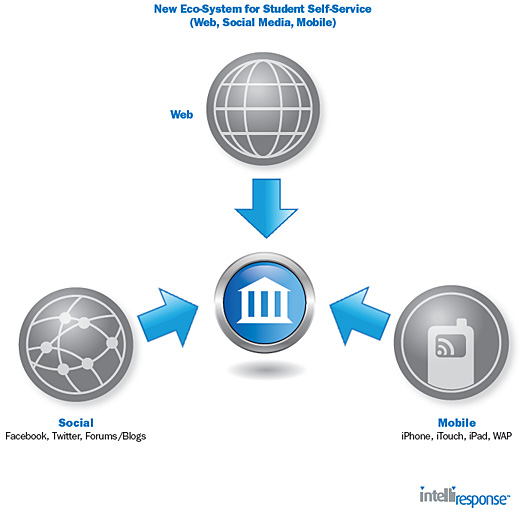10 Internet of Things Blogs To Keep An Eye On — from ReadWriteWeb [via Steve Knode]
Articles/resources re: computer technology — from PCBargainHunters.com
For those interested in Computer Science, there is a nice list of resources at:
http://www.pcbargainhunter.com/articles/computer-science-topics.html
=========================================
EXPERTS CONSIDER THE INTERNET’S FUTURE
=========================================
Is the Internet making us smarter, stupider, more dependent on it, or
all of the above?
The Pew Internet & American Life Project and Elon University’s
Imagining the Internet Center asked dozens of experts–such as Google
research director Peter Norvig, futurist blogger Jamais Cascio, and
tech watcher Esther Dyson–to consider the future of the Internet-
connected world between now and 2020.
Most of the experts agreed that the Internet will make us smarter in
some way by 2020.
“In the coming years we will have to continue to teach people to think
critically so they can better understand the wealth of information
available to them,” said Jeska Dzwigalski of Linden Lab.
Janna Quitney Anderson of Elon University and Lee Rainie of Pew
Internet & American Life Center put the survey together. They’ll speak
on it and on the future of the Internet at WorldFuture 2010, the World
Future Society’s annual meeting in Boston in July.
LEARN MORE:
http://www.wfs.org/2010main.htm
SOURCE:
Pew Research article
Cisco unveils ultra-fast Internet technology — from CNNMoney.com
NEW YORK — Cisco unveiled a new Internet technology Tuesday that it says will provide the ultra-fast data speeds necessary to stay ahead of users’ rapidly growing online video demands.
The new technology, known as “CRS-3,” is a network routing system that will be able to offer downloads of up to 322 Terabits per second, according to the company.
Translation: Well in Cisco terms, the router will be able to provide download speeds of 1 Gigabit per second for everyone in San Francisco, download the entire printed collection of the Library of Congress in 1 second and stream every movie ever created in less than 4 minutes.
Cisco Chief Executive John Chambers acknowledged that many skeptics will say that those speeds and network capacity are not necessary, but he argued that the fast-growing media usage on mobile phones will ultimately demand it.
Also see:
Cisco’s vision of the future
The International Journal of Multimedia & Its Applications (IJMA) is a quarterly open access journal that publishes articles which contribute new results in all areas of the Multimedia & its applications. The journal focuses on all technical and practical aspects of Multimedia and its applications. The goal of this journal is to bring together researchers and practitioners from academia and industry to focus on understanding recent developments this arena, and establishing new collaborations in these areas.
Authors are solicited to contribute to the journal by submitting articles that illustrate research results, projects, surveying works and industrial experiences that describe significant advances in the areas of Multimedia & its applications. Topics of interest include, but are not limited to, the following
- Audio, image, video processing
- Digital Multimedia Broadcasting
- Education and Training
- Multimedia analysis and Internet
- Multimedia and Artificial Intelligence
- Multimedia Applications
- Multimedia Communication and Networking
- Multimedia Content Understanding
- Multimedia Databases and File Systems
- Multimedia human-machine interface and interaction
- Multimedia Interface and Interaction
- Multimedia security and content protection
- Multimedia Signal Processing
- Multimedia standards and related issues
- Multimedia Systems and Devices
- Operating system mechanisms for multimedia
- Virtual reality and 3-D imaging
- Wireless, Mobile Computing and Multimedia
Bruce Klein [SVP for Cisco] Talks About Technology Creating New Business and Learning Models in Higher Education — from focuswashington.com
Technology is playing an increasing role creating new business and learning models in higher education. Bruce Klein, senior vice president for Cisco, provides us with a snapshot on how technology is becoming a strategic tool in not just providing a better experience for teachers, students, and other stakeholders, but also how video is transforming the way students learn and how schools are building brand reputation and increasing competitiveness globally. As an example, Bruce Klein talks about Duke University’s adoption of high-resolution video with Cisco TelePresence and builds a next-generation classroom environment, as well as Purdue University’s new way to deliver student interaction.
Why if you miss Siri you’ll miss the future of the Web — from Scobleizer
Siri is the most useful thing I’ve seen so far this year. But after playing with it, getting an interview with its CEO (video here on building43) it’s even more important for you to pay attention to. It is the best example of what the web will be (emphasis DSC).
From DSC:
In the interview this quote stood out for me: “Siri is a ‘do’-engine…not a search engine.”
Also see:
Meet Siri, the iPhone App from the Future (available now!) — from Profhacker.com
Delegated computing and the future of the web — from Siri.com
-
Dynamic Service Delegation
-
Meta-data Driven
-
Algorithmic Combination
-
The Future of the Web
Siri is just a beginning step to realizing this vision of “delegated computing”, where all the world’s services are being dynamically combined at the user’s beck and call. I do strongly agree with Robert’s post in that I believe that this will happen and that delegated computing will be an import part of the future of the web, and the way we interact with computers in general.
Five Browser Secrets of Power Web Surfers — from fastcompany.com by Gina Trapani — describes how to:
- Set multiple tabs as your browser home page.
- Automatically restore the last tabs and windows you had open.
- Undo your last closed tab.
- Open a link in a background tab by clicking your mousewheel.
- Sync your bookmarks across browsers and computers.
Internet in hand is the cognitive denominator — from Judy Breck and handschooling.com









